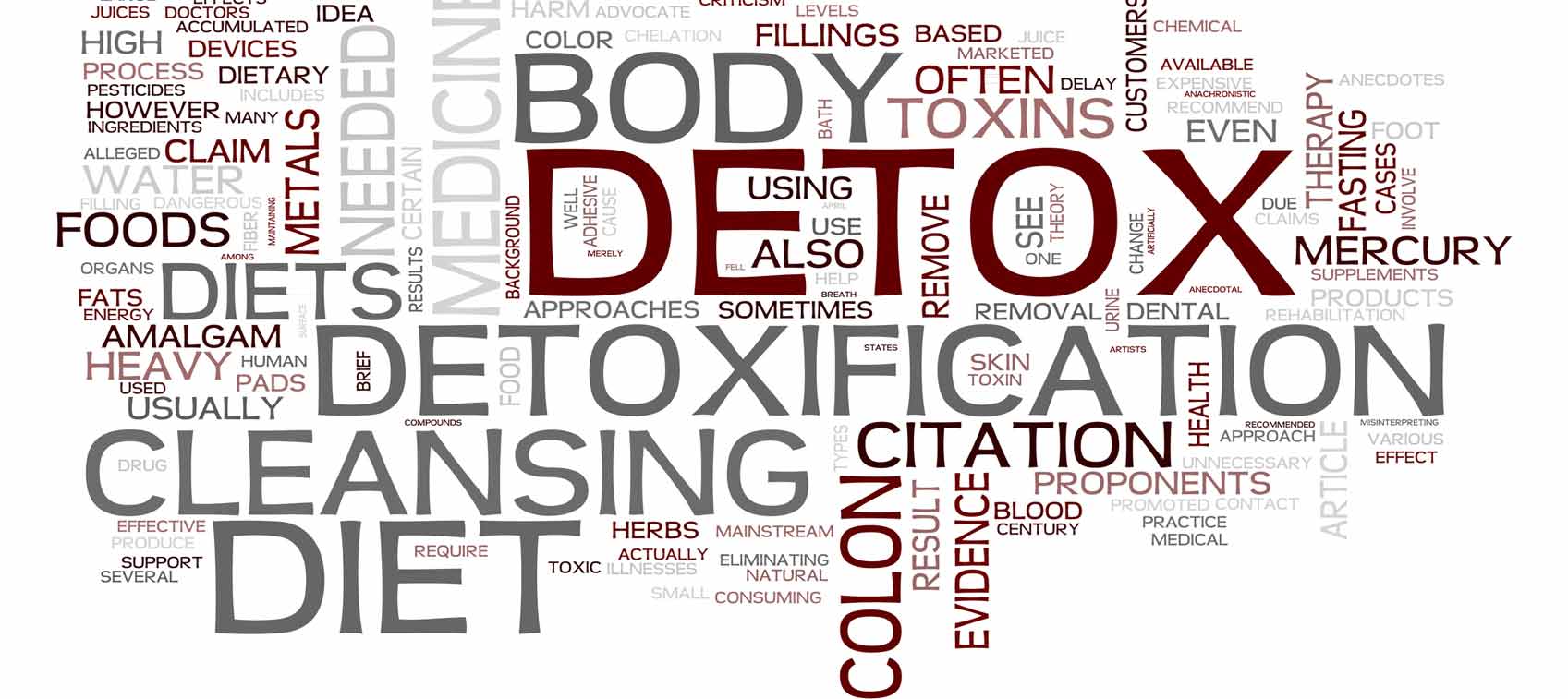
Detoxing is all the rage. You can have fresh, organic juice cleanses delivered to your door, pick up a detox kit at your local health food store, or follow one of the many do-it-yourself programs endorsed by various celebrities.
Advocates claim these types of liver or colon cleanses eliminate toxic buildup, resulting in weight loss, energy, clear thinking, shiny hair, vibrant skin, and more. Naysayers, on the other hand, say it’s all a bunch of bologna.
The truth lies somewhere in between. Let’s look at the common components of these increasingly popular regimens and separate fact from fiction.
Juice Cleanses
Many detox programs require foregoing food and drinking lots of juice. There’s nothing wrong with laying off food for a few days. Fasting is a powerful therapy that gives your system a break, facilitates weight loss, and lowers blood pressure and blood sugar.
However, I wouldn’t recommend any protocol that suggests as many as 12 cups of juice a day. I’ve looked at the nutritional information on some of these products, and a day’s worth contains a massive amount of sugar, almost no fiber, very little protein and fat, and about 1,000 calories. Many home regimens also recommend lots of juice, and one popular program, the Master Cleanse, consists of six to 12 cups of water mixed with maple syrup (sugar), lemon juice, and cayenne pepper.
I’m all for taking a break from your normal diet, but don’t count on it to rid your body of impurities. And if you want to go all-liquid, just drink water.
Detox Diets
Another common feature is an elimination diet, which calls for cutting out sugar, salt, alcohol, caffeine, sodas, grains, and processed foods; drinking lots of water; and emphasizing superfoods such as broccoli, kale, beets, and berries. These diets may also require purchasing special drinks or supplements along with the diet.
This approach is much healthier, less Spartan, and provides many benefits, including weight loss and better blood sugar and blood pressure control. Best of all, it encourages what I consider to be the most valuable aspects of any diet—focusing on your health, being conscious of what you put in your mouth, eating less, giving up junk food, and drinking more water and less alcohol—habits that hopefully will stick. But detox? I’m not so sure.
Because elimination diets are short-term, usually a week to a month, most people return to their old ways. You should be eating a high-fiber, nutrient-dense, vegetable-rich diet every day. It needn’t be as strict these detox diets.
In the real world, people drink coffee and alcohol and eat red meat, bread, and dessert. In moderation, though, these can all be part of a healthy diet—not for days or weeks but for a lifetime.
What About Liver and Colon Cleanses?
I am often asked about liver and colon cleanses. The former usually refers to a concoction of olive oil, Epsom salts, and citrus juice that’s supposed to flush toxins from the liver and gallbladder. The latter involves fiber, laxatives, and, in some cases, enemas or colon irrigation to “remove accumulated wastes.” I can find no research to support the liver flush or colonic irrigation, and taking laxatives to colon cleanse is a terrible idea.
That doesn’t mean you shouldn’t support your colon and liver. Fermented foods such as yogurt and probiotic supplements nurture beneficial gut bacteria, and a high-fiber diet and supplements improve elimination and bind to toxins in the gut. To give your liver a break, go easy on alcohol and medications and get serious about weight loss. Non-alcoholic fatty liver disease, which can lead to serious liver dysfunction, is closely linked with obesity and diabetes, and diet and exercise are the only known therapies.
How to Detox Your Body With Supplements
I also recommend taking a really good multivitamin and mineral supplement to support your liver. The liver doesn’t filter out toxins but converts them into less-toxic compounds that can be eliminated by the kidneys and colon. This process requires glutathione, which neutralizes toxins and protects the liver, and selenium and vitamins C and E help activate and recycle glutathione. Milk thistle and alpha lipoic acid also enhance liver health and are a must for anyone dealing with serious liver disease.
A multivitamin also helps protect against the ill effects of toxins throughout the body. Many heavy metals and chemical pollutants cause cellular damage via oxidative stress, so supplemental antioxidants are essential.
Cellular “housecleaning” requires folic acid and vitamins B6 and B12. Magnesium, calcium, and zinc reduce the absorption of heavy metals in the gut. Zinc helps negate cadmium toxicity, and a robust vitamin C status is associated with lower blood levels of lead. Other supplements that may help remove or protect against toxins include chlorella, garlic, cilantro, and citrus pectin.
Detox Should Be a Daily Affair
If a three-day cleanse (preferably a water fast) or a 10-day elimination diet makes you feel good, lose a little weight, and gets you on the road to a healthier lifestyle, I’m all for it. But never forget that your body’s remarkably effective detoxification system is working 24/7, whether you’re doing a liver or colon cleanse/detox or not. It’s the small steps you take every day to improve your health and support your all-important organs of detox that really make a difference.
Summary of Recommendations on How to Detox Your Body
- Steer clear of obvious sources of toxins;
- Eat a fiber- and vegetable-rich diet;
- Drink a lot of water;
- Suggested supplements include a potent daily multivitamin (look for one that contains selenium 200 mcg, zinc 30 mg, vitamin C 2,000 mg, and vitamin E 200 IU), alpha lipoic acid 600 mg, and silymarin/milk thistle 900 mg.


